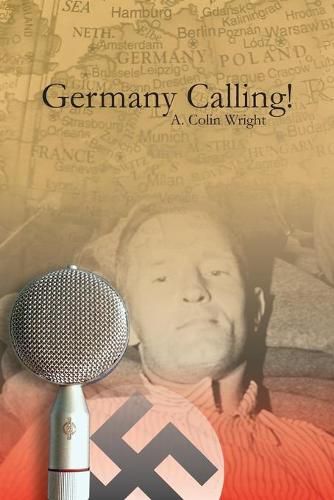Readings Newsletter
Become a Readings Member to make your shopping experience even easier.
Sign in or sign up for free!
You’re not far away from qualifying for FREE standard shipping within Australia
You’ve qualified for FREE standard shipping within Australia
The cart is loading…






This title is printed to order. This book may have been self-published. If so, we cannot guarantee the quality of the content. In the main most books will have gone through the editing process however some may not. We therefore suggest that you be aware of this before ordering this book. If in doubt check either the author or publisher’s details as we are unable to accept any returns unless they are faulty. Please contact us if you have any questions.
"He wanted fame, to be loved for his achievements, the brilliance of what he said. And instead he became famous for what he didn't didn't say." William Joyce Germany Calling! tells the story, with considerable artistic licence, of William Joyce and his wife Margaret. Anti-Semite, fascist and traitor, Joyce by the end of World War Two was hated in Britain: less for his extreme views than for the rumours, totally untrue, about what he was supposed to have said on German radio. For younger audiences today, the majority may not even remember his name, with Joyce being hanged for treason when he was technically not British at all. Why, then, publish a play, both for stage and for radio, about him at all? Simply because his story, including his relationship with his wife (including divorce and subsequent remarriage) is an interesting one, as I was convinced by meeting J. A. Cole with his (one and only) masterful biography of Joyce, whose one desire was to help the common man. Of course Joyce was a bigot, unreasonably dismissive of any contrary opinion to his own, and perfectly capable of closing his eyes to what was taking place in Nazi Germany. An ideological, if naive fascist, his views, lead to problems with his portrayal. I certainly have no desire to idealize Joyce, but at the same time I think that his story is worth being told in dramatic form. A . Colin Wright
$9.00 standard shipping within Australia
FREE standard shipping within Australia for orders over $100.00
Express & International shipping calculated at checkout
This title is printed to order. This book may have been self-published. If so, we cannot guarantee the quality of the content. In the main most books will have gone through the editing process however some may not. We therefore suggest that you be aware of this before ordering this book. If in doubt check either the author or publisher’s details as we are unable to accept any returns unless they are faulty. Please contact us if you have any questions.
"He wanted fame, to be loved for his achievements, the brilliance of what he said. And instead he became famous for what he didn't didn't say." William Joyce Germany Calling! tells the story, with considerable artistic licence, of William Joyce and his wife Margaret. Anti-Semite, fascist and traitor, Joyce by the end of World War Two was hated in Britain: less for his extreme views than for the rumours, totally untrue, about what he was supposed to have said on German radio. For younger audiences today, the majority may not even remember his name, with Joyce being hanged for treason when he was technically not British at all. Why, then, publish a play, both for stage and for radio, about him at all? Simply because his story, including his relationship with his wife (including divorce and subsequent remarriage) is an interesting one, as I was convinced by meeting J. A. Cole with his (one and only) masterful biography of Joyce, whose one desire was to help the common man. Of course Joyce was a bigot, unreasonably dismissive of any contrary opinion to his own, and perfectly capable of closing his eyes to what was taking place in Nazi Germany. An ideological, if naive fascist, his views, lead to problems with his portrayal. I certainly have no desire to idealize Joyce, but at the same time I think that his story is worth being told in dramatic form. A . Colin Wright